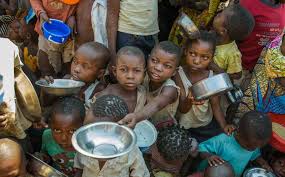The World Bank has reported that 104 million Nigerians—approximately 47 percent of the population—were living below the poverty line in 2023, up from 40 percent in 2018. The report attributed the worsening situation to sluggish economic growth, high inflation, and growing disparities between rural and urban areas.
According to the report, poverty levels in rural communities rose significantly, with the number of people affected increasing from 67 million to 84 million. Urban areas also saw an increase from 13 million to 20 million people living in poverty. The World Bank warned that if current trends persist, poverty could rise further, reaching 56 percent by 2027.
In response, President of the Nigerian Association of Chambers of Commerce, Industry, Mines and Agriculture (NACCIMA), Dele Kelvin Oye, outlined a 13-point plan aimed at reversing the projected rise in poverty. The proposals include targeted economic stimulus packages, increased investment in agriculture, expanded access to credit and microfinance, the creation of a supportive tax environment, and robust vocational training programs for unemployed youth and women.
Speaking on economic stimulus initiatives, Oye emphasized the need for well-structured interventions focused on vulnerable populations, such as cash transfers, food assistance programs, and direct support to small and medium-sized enterprises (SMEs) to boost job creation. He noted that existing support systems are often poorly structured and vulnerable to abuse, calling for independent monitoring and thorough evaluation.
Highlighting agriculture as a key sector, Oye recommended subsidizing farming inputs, providing long-term, single-digit interest credit, and expanding agricultural training programs to enhance food security and promote sustainable livelihoods.
He also stressed the importance of broadening access to microfinance, especially for women and youth, to foster self-employment and combat the ongoing “Japa Syndrome,” where young Nigerians seek opportunities abroad.
Oye further advocated for the strengthening and expansion of vocational and skills training programs nationwide, suggesting enhanced collaboration between the government, the German government, and NACCIMA to equip more citizens with marketable skills.
In addition, he called for improved rural infrastructure to facilitate market access for farmers and small businesses, leading to increased incomes and reduced poverty. Oye warned that recent tax policies—such as the extension of taxes to free trade zones and heavy levies on international investors—could deter crucial investments. He urged the government to review such measures to create a more business-friendly environment.
Public-private partnerships, according to Oye, should be encouraged to finance development initiatives, and the government should work to reduce barriers to private investment, particularly in sectors like solid minerals.
He also proposed the expansion of social safety nets, including unemployment benefits and healthcare access, and called for targeted awareness campaigns to inform vulnerable populations about available government support programs.
Addressing security concerns, Oye emphasized that restoring peace, especially in rural areas, is critical to improving agricultural productivity and investment, and, by extension, reducing poverty.
On trade, Oye referenced comments by WTO Director-General Dr. Ngozi Okonjo-Iweala, who noted that Africa’s limited trade with the United States has hampered economic growth. He stressed the need for Nigeria to leverage opportunities under the African Continental Free Trade Area (AfCFTA) to boost intra-African trade.
According to Oye, Nigeria must prioritize local manufacturing over raw material exports to add value and stimulate industrialization. Citing African Development Bank President Dr. Akinwumi Adesina, he emphasized that industrialization is fundamental to breaking the cycle of poverty and achieving sustainable development.
Nzubechukwu Eze.









